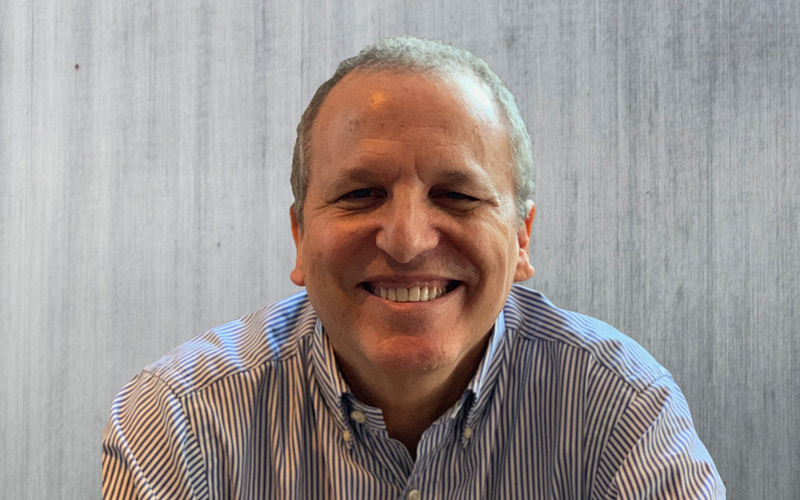“ Both analyst and patient will have to share a bitter taste of abandonment, of boredom, of antagonism and they have to remain together, because together they will be able to construct something to get out of it.”

Jose Zusman, MD
Rio de Janiero
Episode Description:
Harvey Schwartz welcomes Dr. Jose Zusman who is a psychiatrist and a psychoanalyst in Rio de Janeiro. He is a training analyst and a professor at the Psychoanalytic Society of Rio de Janeiro and he is a professor and supervisor in psychoanalytic oriented psychotherapy for the Psychiatry Residents at the Federal University in Rio de Janeiro, where he holds a Master in Psychiatry and also a PhD in Psychoanalysis. As you will hear in today’s interview, Dr. Zusman shares with us a sensitive understanding of the trauma and lack of resonances that one can find in the early lives of patients who later become addicted. He also describes how one, as a depth psychotherapist and analyst, can listen and ameliorate some of the pain in the patient’s inner lives that lead them to turn to addictive substances.
Key Takeaways:
[3:19] What is vital about a psychoanalytic approach in working with addicted patients?
[5:01] Addiction is a symptom.
[5:58] The environment is fundamental.
[6:40] Object seeking.
[7:13] Distortion of the reality.
[8:09] The addicted patient can’t find what they need.
[8:44] Human beings are a dependent species.
[11:44] How do you treat a patient who has not been recognized?
[12:39] The addicted clings to any element that makes them feel alive.
[13:18] Patients turn to sensations instead of affects.
[14:27] A clinical case.
[22:57] “I am seeing you”
[23:20] How do you apply a psychoanalytic intervention with patients that are financially impaired?
[24:05] Do not forget the patient.
[25:50] Current situation in Brazil regarding psychoanalytic assistance.
[27:30] We don’t treat symptoms, we deal with the origins.
Recommended Readings
Hercz G. The trauma of dialysis Initiation. J Am Soc Nephrol 28: 2835-2837, 2017
Garland C. External disasters and the internal world : An approach to psychotherapeutic understanding of survivors. In: Textbook of Psychotherapy in Psychiatric Practice, edited by Holmes J, London, Churchill Livingstone. 1991, pp 507-532
Aisenstein M. The indissociable unity of psyche and soma: A view from the Paris Psychosomatic School. Int J Psychoanal 87:667-680, 2006
Winkley L. Living with chronic illness: Consultation to a children’s renal dialysis unit. J Child Psychother 16:49-62, 1990
Balint, M. (1968/1979).The Basic Fault. Tavistock Publication. London.
Dodes, L (2003). The Heart of Addiction. HarperCollins Publishers. New York.
Fairbairn, W: (2014). Then and Now Routledge Publishers. New York.
Khantzian, E.J. (1997). Treating Addiction as a Human Process Jason Aronson. New York
McDougall, J (1995). The Many Faces of Eros. W.W. Norton Company, Inc. New York.

Thanks IPA and thank the coleague Zusman, to share your experience with us. . I am also a psichiatry and psychoanalyst and I work with adict patients in a public health service of a Brazilian small town. I don´t work with them in individual sessions, but the psychoanalitic ideias help me a lot, to understand the fragile ego and the need to atachment, and the poor simbolization development . But for many years I found a way to stay with them once a week, in group. We watch films (I love cinema and literature), and we talk about them. The movies are not about adiction, is not an educational program. It is a cultural activity. The participation has been even today surprising, the conversation is vivid and sometimes more interesting that some others I can have with my patients in my private pratice of psychoanalysis, who have totally different social and cultural conditons.
Hi Adriana, thanks for your valuable contribution. It seems to me that your viewpoint confirms in some way what I said about the importance of developing and sharing a human experience with addict patients. Sometimes even through creative means as you are doing. It would be a pleasure to further discuss it with you in private. Please do make contact with me whenever you can. As I am now at the IPA Congress we could even meet here!
All the best,